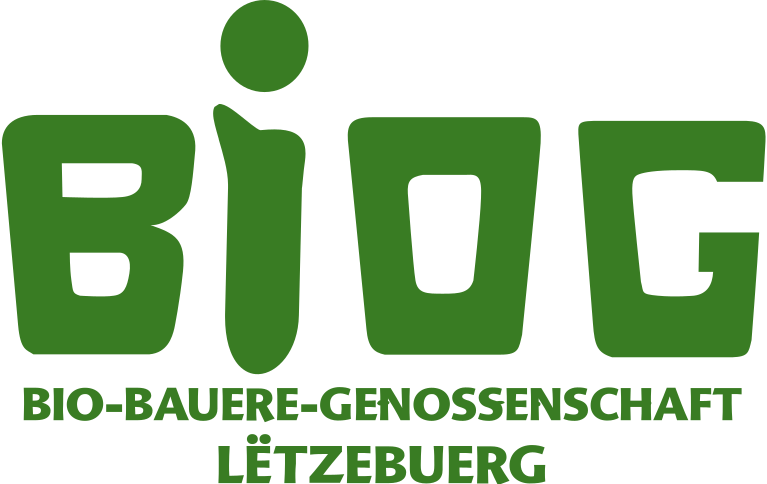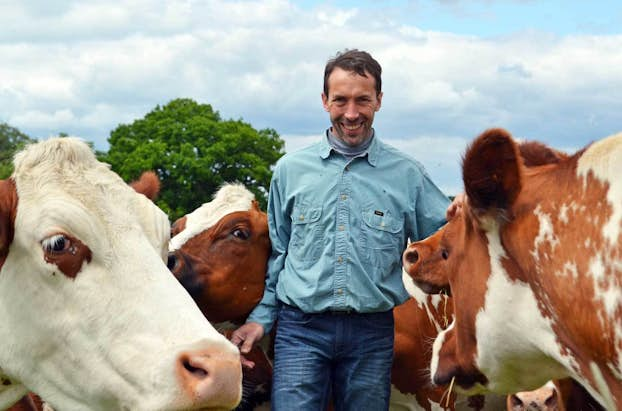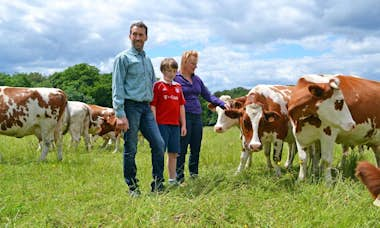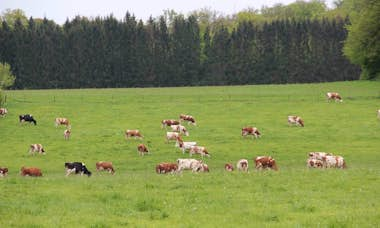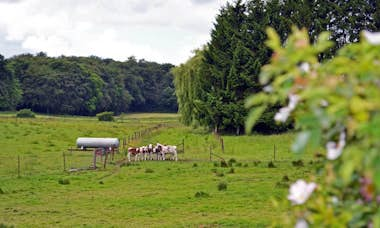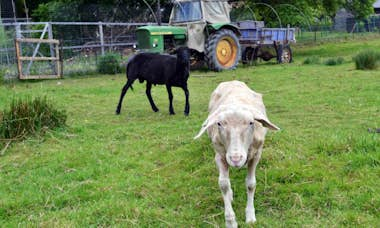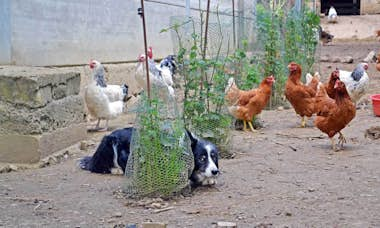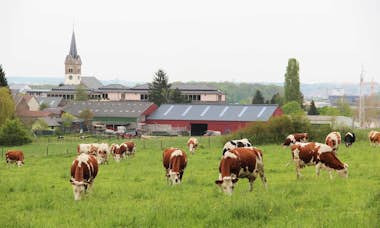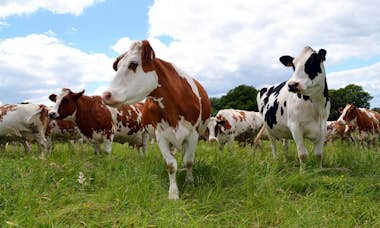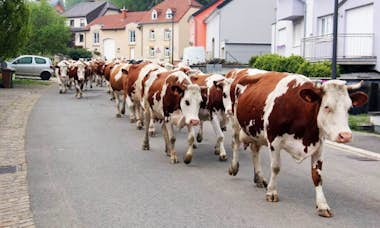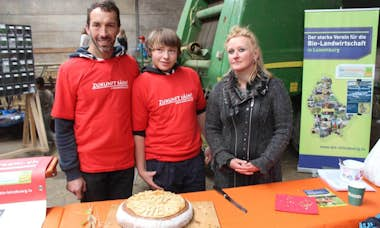- Member ofDemeter,
- Member ofVereenegung fir Bio-Landwirtschaft Lëtzebuerg asbl.
Serge Van Dyck
Demeter stands for something truly good
Organic farmer by conviction
Serge van Dyck has never let go of the thought of converting his farm to an organic farm. For several years, other events came up that postponed his conversion. Finally, in 2011, the time was right and the farmer has put his convictions into practice. The conversion to a biodynamic farm did not happen for economic reasons and constraints or because of weaknesses in society. Serge wanted to do something good in the truest sense of the word and for him, organic stands for exactly that.
The transition was relatively easy for him, but according to the farmer, the most important criteria for success is the readiness in the mind and the willingness. Since he switched to organic farming, his attitude and view of things has changed and became more global. He has the feeling that his work makes sense and does it with greater awareness. He also discovers chances and opportunities and recognizes the advantages of his organic farming, even if the yields are not as expected.
Organic farming is the basis for health and nature conservation and forms an overall concept for us.
What is important is the overall concept
The cowshed on the farm is home to a herd of suckler cows and a herd of dairy cows of the Fleckvieh and Limousin breeds. The farm is largely self-sufficient in feed, which means that very little concentrated feed is purchased. Animal husbandry according to organic guidelines is reflected in the health of the animals, almost no veterinary is needed. In addition, the organic farmer relies on homeopathic therapy. Everyone has to gain his own experience with alternative medicine practices, because the effect lies in the eye of the beholder. However since no toxins are used, it is worth a risk-free experiment.
Serge van Dyck and his colleague work according to the classical arable farming method with a crop rotation consisting of two years of clover grass, followed by winter and summer crops. Then winter peas are grown with triticale for silage and the cycle is completed by spelt and rye. Over time, however, each farmer must gain his own experience and cultivate what works best on the arable land and is adapted to the structure of the farm. The farm located in the Gutland region has no sandy soil and is therefore more difficult to cultivate. The emphasis here is on grassland.
In agriculture, the overall concept is important. The production should be versatile and include animal husbandry as well as arable farming, the manure is used as organic fertilizer and social contact and exchange with like-minded, interested people is established. The pedagogical farm has the aim that especially children, but also adults, can experience agriculture. Visitors can help with the animals, such as calves, sheep, chickens, ponies, pigs and rabbits.
The organic farm produces high quality bread cereals for BIOG and markets its meat via Biomaufel. Serge is a member of the BIOG cooperative and a shareholder of the BIOG dairy, which collects, processes and markets his milk. He also markets his organic milk and eggs himself on the farm and his organic meat is available on order.
More great and interesting information can be found on the family website (see on the right).
